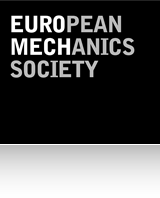567 – Turbulent mixing in stratified flows
Chairperson:
Prof. Paul Linden
DAMTP
Centre for Mathematical Sciences
Wilberforce Road
Cambridge
CB3 0WA, UK
phone: +447730414393
email: pfl4@cam.ac.uk
Co-chairperson
Prof. Jean-Marc Chomaz
Laboratoire d'Hydrodynamique (LadHyX)
91128 Palaiseau cedex, France
Understanding turbulent mixing is one of the outstanding central problems of physics, with applications throughout industry and the natural world. An important example of the latter is the downward transport of heat in the oceans from the surface to the deep abyss, a key factor in the oceanic storage of heat in the climate system. This transport is driven by turbulent processes that must overcome the stable vertical stratification that inhibits vertical motion. Exactly how this occurs is not known, and even in idealised flows our understanding of the turbulent dynamics does not allow us to predict vertical fluxes from the mean fields. Consequently, turbulent transport is represented in an approximate way in climate models and this leads to substantial uncertainty in their predictive capabilities. This is fundamentally a problem in stratified turbulence that also has application in industrial processes and other environmental problems such as the transport and fate of pollution.
Recently there have been significant theoretical advances in unstratified turbulence coupled with extensive computational and laboratory studies. The aim of this conference is to explore the application of these techniques to stratified turbulent systems. We anticipate that bringing together a group of experts with widely varying backgrounds will ultimately lead to significant advances in the understanding of stratified turbulence and the development of models for practical applications. Pursuing this important and wide-ranging objective will require testing the theoretical predictions using experimental and direct numerical simulation (DNS) data that are beginning to be collected.
The colloquium will discuss the relevant oceanographic, atmospheric and industrial flows applications along with sessions discussing the theoretical, experimental and computational aspects of this topic. The latest results in both unstratified and stratified turbulence will be presented with the view to developing a holistic approach that links experiment, calculation and theory in the quantitative combination needed to gain the insights into the dynamics.
